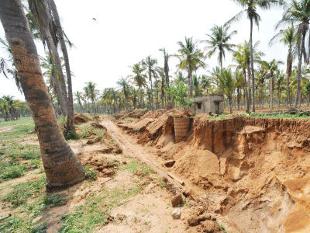 Chennai, Aug 22: Defence Research and Development Organisation's project for setting up an Aeronautical Testing range at Chitradurga in Karnataka has been halted by the National Green Tribunal as it did not have necessary clearance from Karnataka Pollution Control Board.
Chennai, Aug 22: Defence Research and Development Organisation's project for setting up an Aeronautical Testing range at Chitradurga in Karnataka has been halted by the National Green Tribunal as it did not have necessary clearance from Karnataka Pollution Control Board.
The southern bench of the tribunal passed the interim order while hearing a petition filed by environmental activists from Bangalore, who alleged that the farm lands in the area were converted for the testing range.
The petition submitted that over 10,000 acres of farm lands called 'Amrit Mahal Kaval' in Karnataka were being converted for industrial purposes violating norms and the land was transferred to various organisations such as the DRDO, Indian Institute of Science and Indian Space Research Organisation by the Karnataka government.
The petition further sought a direction to restore the lands to its original self without any encroachment and construction.
The NGT had set up an expert committee to go into the actual status of the land in Chitradurga and the committee had submitted its report recently.
When the matter came up yesterday, counsel for respondents said no clearance from the KPCB was necessary for the project and it was clarified by the Environment and Forests Ministry. It was contended that if the NGT passed an order halting the project, it will result in huge loss of public money.
Observing that the DRDO had gone ahead with the construction even as its application to the KPCB was pending, the bench said it was not in accordance with norms.
The tribunal ordered that status quo should be maintained till the KPCB considered the application and processed it as per the requirements. The matter was posted to September 17.





Comments
Add new comment